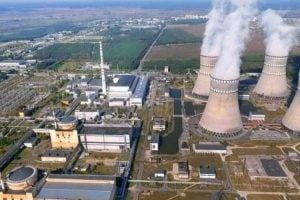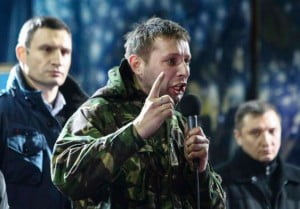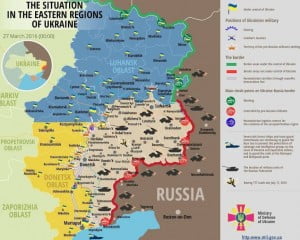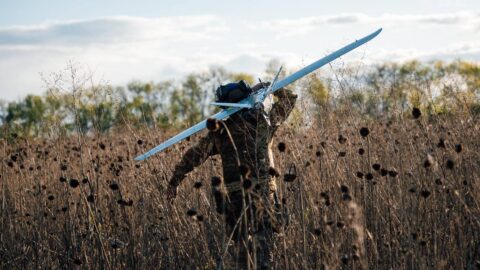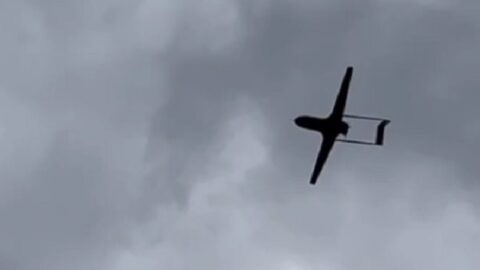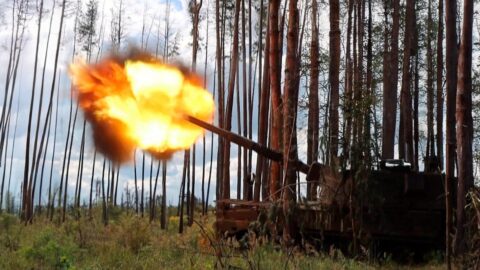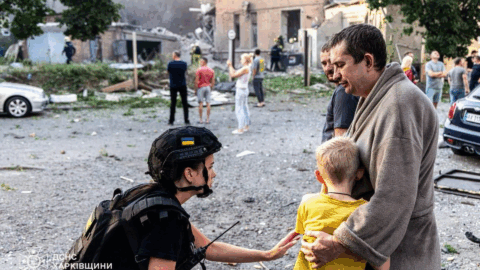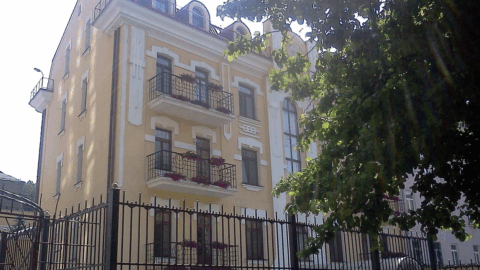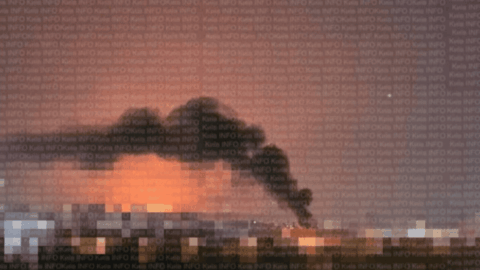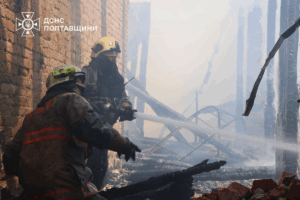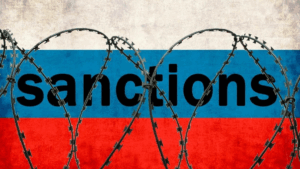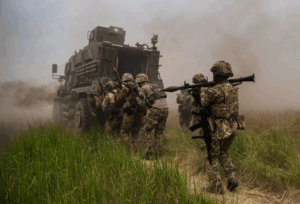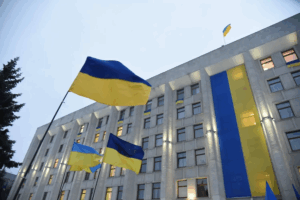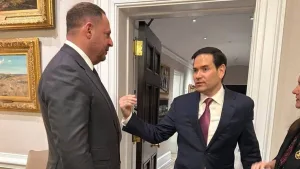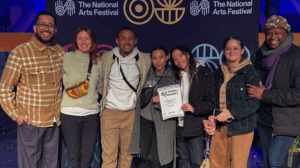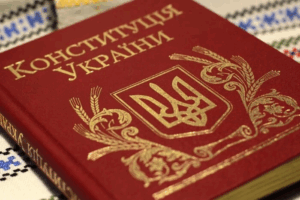Oleksandra Matvichuk: We found death sentences in eastern Ukraine
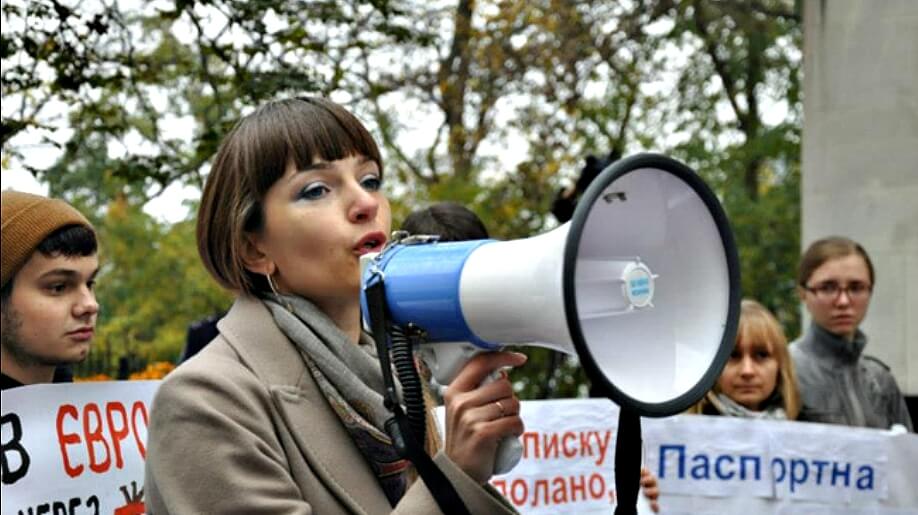
The Kyiv-based organization “Civil Liberties Center” has sent out teams to travel through occupied Crimea and the liberated parts of Donbas to gather information and evidence of war crimes that have been committed in the occupied territories.
Oleksandra Matvichuk, director of the Center and co-coordinator of EuromaidanSOS, explains to Anton Semyzhenko from The Insider.
In the war in eastern Ukraine, after a battle ends, investigators and lawyers step in to do their work. They document hundreds of grievances against common criminals, against the organizers of the crimes, against organizations, and even against countries. Regular Ukrainian citizens have taken on the work of documenting the grievances because the government is dragging its feet.
– What do your mobile groups do in Donbas?
Their main goal is to document the crimes that have been committed during the occupation. We are aware that it will take time for the results of our work to be evident. But sooner or later the material we are collecting will help restore justice.
After the Maidan, all of a sudden the authorities needed the material that EuromaidanSOS had collected about the civil rights abuses committed during the Maidan by the Yanukovich regime. The office of the prosecutor general had declared that there was no information, that all of it had been destroyed. People know that from February 24th to the 26th government office courtyards were ablaze with burning documents. According to our calculations 70% of the documents were destroyed. Some of the clinics destroyed evidence following the law on amnesty which stated “delete all data concerning the Maidan participants” and it was done very efficiently. Thus the information we had collected proved to be useful.
Likewise with the war. When it ends not only buildings and roads will have to be rebuilt but people’s faith in the fact that justice is achievable. War crimes such as kidnapping, torture, subjecting civilians to abuse and maltreatment, using civilians as human shields, the seizure of property, the destruction of public objects – all of that is illegal and does not fall under any statute of limitations.
– Who are the people doing the monitoring and documenting?
They are ordinary volunteers, but they must be qualified. After all, one has to be trained in how to interview a recently released, traumatized individual who had been held captive. Visiting the war zone to acquire firsthand experience to gain a better understanding of the victims and to develop the necessary spiritual and mental fortitude is important.
We would be very happy to see professionals working with us but they have not volunteered to join any of our groups. They do offer help though, as when we needed ballistics experts to investigate the executions in the “green corridor” at Debaltsevo.
– In Crimea what were you involved in?
We had three types of mobile groups. The first group documented human rights violations. It’s not true that Crimea surrendered without the spilling of blood. People were kidnapped and illegally held captive, there was torture, there were deaths, there are missing people.
The second group built a network of contacts. Human rights activists, journalists, and civic activists left the peninsula almost immediately. Their lives were in danger. So we became acquainted with the people who stayed and wanted to do something. We worked with them.
The third group mostly documented what was going on around the military posts. Companies in Lviv bought us the basic equipment required for simple, direct video transmitting to the internet and our third mobile group traveled to all the military posts, taught the guys how to use the equipment and left it for them to use.
We haven’t gone to Crimea since last summer.
– Why not?
The risk we were subjecting our contacts to was too great. Anyone who is trying to do anything is spied on by the “Crimean Self-defense.” The only independent group left in Crimea is the Committee for the Protection of the Rights of the Crimean Tatars. We are working with them. They track all the cases of political persecution, of not only the Crimean Tatars, and pass the information on to us.
Many of our sources are still there plus the Russian human rights activists from the group “Crimean Field Mission” help us so that we can compile a list of human rights violations, “The Chronicles of Occupation.”
It is an illusion that there is no war in Crimea, an illusion and propaganda. There is a war. It is a quiet war, fought without military weapons but civic society is under attack. People were left to fend for themselves with the occupier.
– The fact that people in Crimea are afraid is understandable. How about Donbas, are people there willing to talk?
They are afraid, too. There are places where the police officers who were involved in kidnapping are still working as police officers. I know there is no magic wand that with a single motion could replace personnel, but something could have been done already.
Another of our tasks, the reform of the legislative bodies, falls into this category, too. First of all in the law enforcement agencies and in the courts. We are working with the parliament to try to have some bearing on the quality of the laws being written. As an example, parliament has adopted a decree that allows for the non implementation of certain commitments as required by the European Convention on Human Rights in the Occupied Territories. The state has admitted that it is powerless in defending the human rights in Crimea and the occupied part of Donbas and that the rights of citizens in some of the adjoining areas are restricted due to the occasional armed fighting. Of course that is proper and understandable – it is necessary to adapt legislation in a time of war. But we must also guard against abuses, and put additional responsibilities on various government bodies in these adjoining areas. For example local courts could resume their work, they could be issuing arrest warrants. Naturally, not when there is shelling going on, but the whole territory is not under shelling and it is definitely not a reason for us to stop our work. Law enforcement needs improvement, evidence of war crimes needs to be collected and documented, and in cases where the Ukrainian armed forces act illegally we must react. The latter affects the local population very negatively, one such incident that went unpunished set people against Ukraine and of course Russian propaganda takes maximal advantage of something like this.
– You actively appeal for the ratification by Ukraine of the Rome Statute. What will be the benefit for Ukraine?
Ukraine would be endowed with the right to appeal to the International Criminal Court in The Hague. It has jurisdiction over the most serious human rights violations: war crimes, crimes against humanity, genocide, and possibly from 2017 there will even be a crime of aggression. This is not about individual cases of murder or torture, it must be proven that a deliberate, systemic policy of the mass implementation of murder and torture was in force.
Parliament passed a resolution acknowledging the ICC’s jurisdiction from 23 February 2014 through February 2015. For some reason, though, after six months the resolution still has not been sent to the supreme court.
– Why the resistance from the government?
It seems government officials do not understand the nature of the International Criminal Court. As an example, MPs say, “But we haven’t declared war and our soldiers are killing people. So they will be put on trial by the ICC.” We prepared informational material for the MPs proving that that would not be the case; we provided answers to various questions, such as does it make sense to ratify the Rome Statute if Russia has not done so. And the answer is, yes, it makes sense to ratify the statute. We then arranged a round table discussion with representatives of the ICC. Our MPs apparently did not have time for that, they did not attend.
Actually, if the jurisdiction of the ICC were broadened to include the period from February 2014 through February 2015 then the measures the Ukrainian armed forces took would be investigated as well. So is there any sense in not fully ratifying the statute?
In general, the state has not developed a strategy to protect our citizens in the international arena. An appeal had been sent to the European Court in regard to Nadia Savchenko’s case, but the EC is not the authority that can demand the immediate release of a person held in custody. The European Court is effective in other cases, such as in winning compensation for moral and material damage.
There are other mechanisms that are never used. For example, the so-called “world court” – the International Court of the United Nations. I do not understand why Ukraine has not filed a lawsuit against the Russian Federation and no ruling has been made in the case of the illegal annexation of Crimea. This is a simple and clear legal case, and we could have a resolution. Of course the ruling would not automatically return Crimea to Ukraine, but speculation on that subject would cease.
– People are frustrated that none of the organizers of the violence that was perpetrated against peaceful demonstrators on the Maidan have been brought to justice. The people in eastern Ukraine who inflamed the situation, and Yanukovich’s clan have not been brought to justice, either. Is the government powerless or unwilling?
I often wonder about that myself. As a lawyer I understand that it is impossible to conduct investigations and court hearings in a year’s time. But it would be nice to see some action. There are instances of insufficient information. For example back in February we together with the Heaven’s Hundred team of lawyers studied and analyzed each criminal proceeding that has been held since November 25, the day of the violent attack on the students. We pointed out the oversights in the proceedings. For example on January 23, 2014 the Automaidan activists were attacked and beaten and 14 attackers have been identified yet they have not been charged and in fact are serving in the “new” Berkut. Why?
I want to emphasize: if at this point people were to give in, if people stop demanding an investigation and a fair trial, if this battle is to be fought by the team of the Heaven’s Hundred lawyers alone, we will end up with nothing. If people lose interest in what is or isn’t being done, if people stop writing appeals, if they stop demanding answers and accountability from the prosecutors, the court will continue to rule unjustly. And that means that we have not learned the lessons history is teaching us. This is a question not just about punishing specific people who committed these crimes or gave orders. This is a warning about what we can expect in the future. Unpunished evil spreads and grows. And if we fail to put a stop to it here and now, this will be a clear signal that the use of terror as tool of power and control could be repeated.
Original article in Ukrainian is available on theinsider.ua.
EMPR, O. R. contributed to this publication
Tags:
Conflict zone



